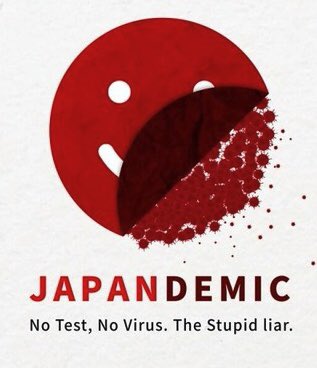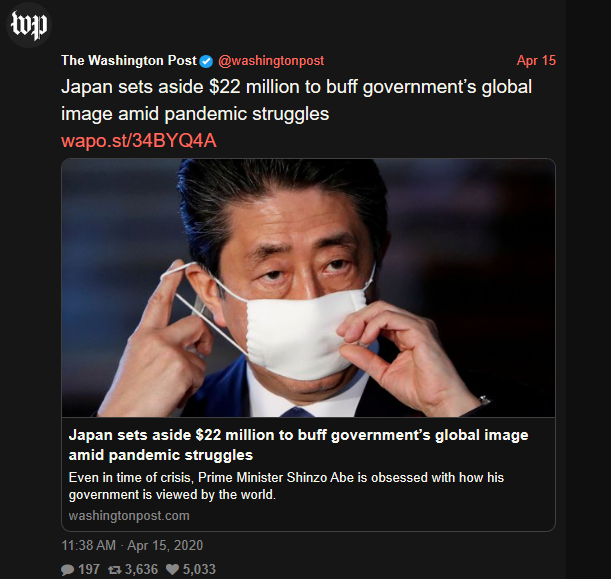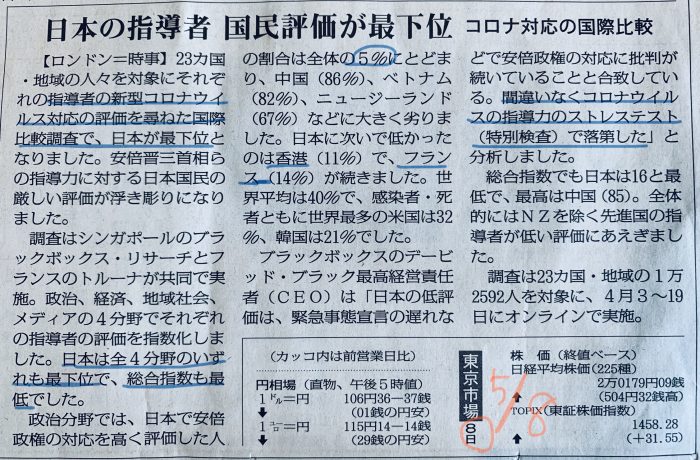
The Washington Post: Japan sets aside $22 million to buff government’s global image amid pandemic struggles
By Simon Denyer April 15, 2020 at 11:30 p.m.
Failed Abeno Strategies such as :Abeno”mix,” Abeno”Mask,” Abeno”Risk” and
TOKYO — As Japan’s novel coronavirus infections surge and its health-care system stands on the brink of collapse, the government of Prime Minister Shinzo Abe has an added concern: its image.
An emergency economic relief package unveiled last week earmarked $22 million for the foreign ministry “to dispel negative perceptions of Japan related to infectious diseases,” and to strengthen communications about the situation in Japan — over the Internet and through its embassies.
Artificial intelligence will also be harnessed to monitor social media and see what is being said about Japan abroad. This will give the Foreign Ministry a chance to respond to “wrong information,” the Mainichi newspaper reported. Many countries set aside money for international image-building, but Japan’s latest move strikes many critics as ill-timed, especially as part of an emergency economic relief package in the midst of a pandemic.
It’s a typically defensive reaction from an administration “obsessed with its international image,” said Nancy Snow, a professor of public diplomacy at Kyoto University of Foreign Studies.
“This is a conservative government that does not take kindly to any dissent internally or externally,” she said. “Their solution is always this simple, ‘let’s put some money aside,’ because that seems less daunting than handling the real situation.”
Criticism initially centered on Japan’s handling of infections on board the Diamond Princess cruise ship in February.
Despite emotional appeals from the leaders of Japan’s medical community, from independent experts and regional leaders, Abe dithered for weeks before finally declaring a partial state of emergency over seven of the country’s 47 prefectures last week.
In newspaper headlines and tweets, Abe was compared to Louis XVI, an uncaring and out-of-touch leader with little understanding of the suffering of ordinary people outside his “palace.”
But the foreign criticism seems to have particularly stung.
Japan’s global public relations budget has risen sharply since Abe took over as prime minister in 2012, in an attempt to bolster Japan’s reputation as a reliable ally of the United States and as a democratic leader in Asia to counter authoritarian China. But money is also spent on attempts to whitewash Japan’s wartime past, critics say.



